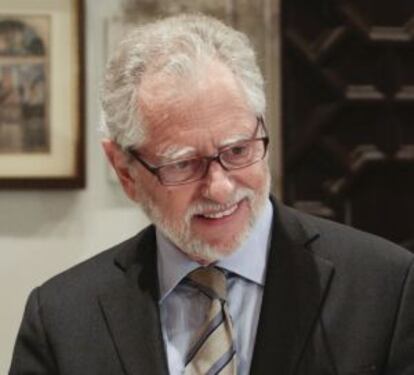Catalan government advisors say EU would accept region as a full member
Report ignores assertions by European leaders that an independent Catalonia would be expelled


The Catalan government’s advisors believe that despite warnings to the contrary, the European Union would sooner or later admit an independent Catalonia as a member state for political and economic reasons.
The National Transition Advisory Council, which is guiding regional premier Artur Mas through his pro-sovereignty bid, claims that there is a loophole in current European and international legislation that would help Catalonia join the union.
Existing legislation, says this body of legal experts, does not cover a case such as Catalonia’s – that’s to say, a segregation of part of a state. That is why those who invoke Article 49 of the Treaty of the Union, which lays out the mechanism for membership, have “no legal basis” for their claims, they argue.
“The logical thing is not to force one to leave in order to let them in again”
In January of this year, European Commission leader José Manuel Durao Barroso said in writing that if Catalonia were to secede, it would automatically be excluded from the European Union and would have to reapply for membership.
But Carles Viver i Pi-Sunyer, president of Mas’s advisory council, holds that the dilemma is not so much whether Catalonia will be left out of the European club, but rather when and how it is ratified as a full member.
“The logical thing is not to force one to leave in order to let them in again,” he said.

The council’s report is the sixth in a list of 18 that this body plans to draft and present before the summer.
The 50-page analysis contemplates four scenarios: the first and easiest, for Catalonia to seamlessly become a member state with a “small modification” to the EU treaties; for the new entity to be excluded from the EU because of a veto, which would still leave the door open to some form of tailor-made membership mechanism; for Brussels to ask Catalonia to get in line after other EU petitioners such as Iceland, Serbia and Turkey; or, ultimately, for neither Spain nor the EU to recognize Catalonia’s statehood and reject all possibilities of membership.
Even in this worst-case scenario, European legislation would continue to be enforced, says Pi-Sunyer, alleging that ultimately “European and international law do not have a ready-made solution, and the decision will be based on political and economic criteria.”
The nationalist coalition in government has set November 9 as the date for a popular referendum on self-rule. A recent petition to the Spanish Congress to transfer the necessary rights to hold the poll legally was voted down. This leaves Mas with the option of getting his own legislation passed in the Catalan parliament — a move that would automatically be appealed by most mainstream parties, including the Popular Party and the Socialists.
Tu suscripción se está usando en otro dispositivo
¿Quieres añadir otro usuario a tu suscripción?
Si continúas leyendo en este dispositivo, no se podrá leer en el otro.
FlechaTu suscripción se está usando en otro dispositivo y solo puedes acceder a EL PAÍS desde un dispositivo a la vez.
Si quieres compartir tu cuenta, cambia tu suscripción a la modalidad Premium, así podrás añadir otro usuario. Cada uno accederá con su propia cuenta de email, lo que os permitirá personalizar vuestra experiencia en EL PAÍS.
En el caso de no saber quién está usando tu cuenta, te recomendamos cambiar tu contraseña aquí.
Si decides continuar compartiendo tu cuenta, este mensaje se mostrará en tu dispositivo y en el de la otra persona que está usando tu cuenta de forma indefinida, afectando a tu experiencia de lectura. Puedes consultar aquí los términos y condiciones de la suscripción digital.








































